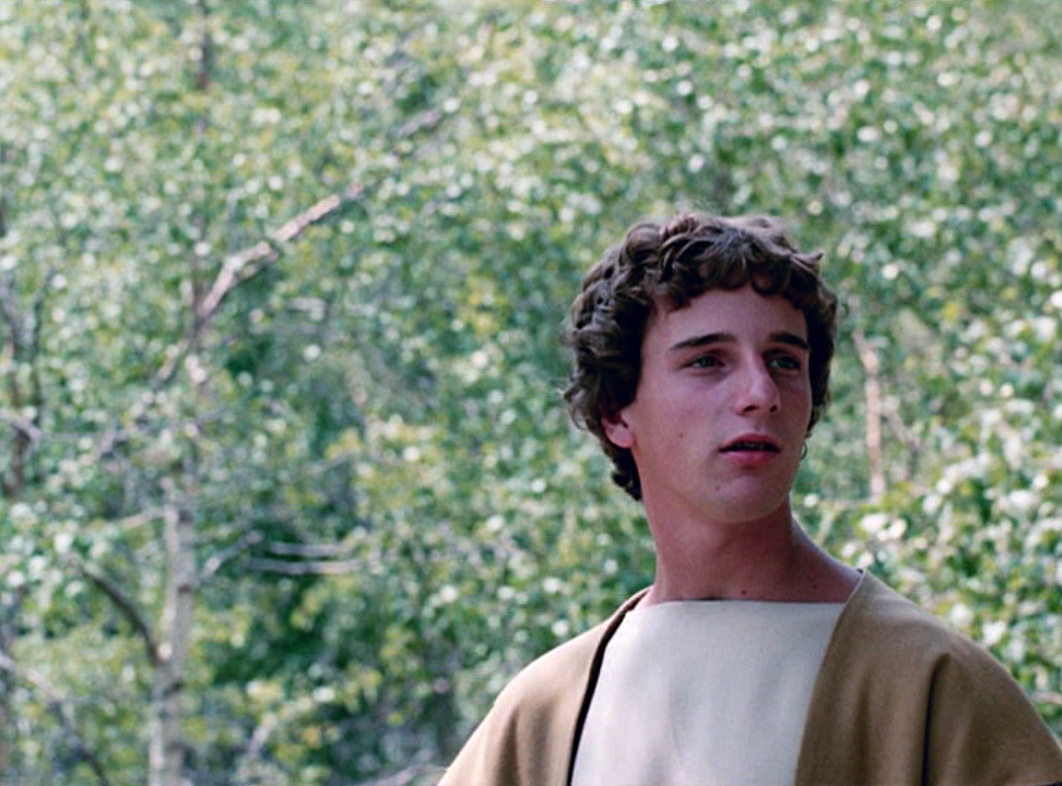
The pre-Socratic Greek philosopher Empedocles possessed magical healing powers through his communion with the gods and nature. He inspired awe and trust in the people by prophesizing a vision of a new Earth, a communist utopia, before committing a noble suicide. However, at the start of Straub-Huillet’s mesmerizing film – an adaptation of the first version of Hölderlin’s tragic poem, written during the outbreak of the French Revolution – Empedocles is at the point of death. An enemy of the priestly state, he is cast into darkness, suffering the torments of loneliness and doubt, but finds renewed strength, even immortality, through the will of the people.
EN
“"Let us try to start from scratch, before it's too late... What we try to explore are things that are outside of ourselves," Straub said after a screening of Der Tod des Empedokles in Avignon, 1987. I saw the film for the first time during a train ride with ÖBB from Denmark to Italy and felt a very peculiar political ecology resonating in the minimalist staging of Friedrich Hölderlin's posthumously published Der Tod des Empedocles from 1826. Fragments from Hölderlin's tragedy are activated in Huillet and Straub's meticulous stage design in an almost electric dark green volcanic grove in front of Mount Etna in Sicily. From the first to the last frame, the characters recite and almost chant Hölderlin's tragedy. Occasionally, the characters disappear out of the picture: The decentering of the human. Huillet and Straub's excitement for the transnational, as expressed in Sequence's collection Jean-Marie Straub and Daniéle Huillet – Writings, together with their reactualization of the political-romantic ecology of Hölderlin, helps to give the very static and abstract sequences of images and words an overwhelming effect on me. Straub's argument is also that the tragedy and the paradoxical sense of apathy and revolutionary affect that exists in all of us today also existed in Hölderlin's work in the early stages of 18th-century extractivist capitalism. Hölderlin explored the revolutionary potential of a certain subjective fatalism in an early modernist idiom and with a tragic utopia as its ultimate goal. "The green of the Earth will glisten again," says the voice of Empedocles offscreen to the images of clouds hovering past the peak of Etna. That this statement and utopia are somehow found in the subjective contemplation beyond the capitalist-democratic order is the feeling I had when I watched the last seconds of the film on the stretch across the Venetian lagoon just before the Santa Lucia railway station. Let us try to start from scratch, before it's too late. Let us make the green of Earth glisten again.”
Jeppe Sengupta Carstensen1

